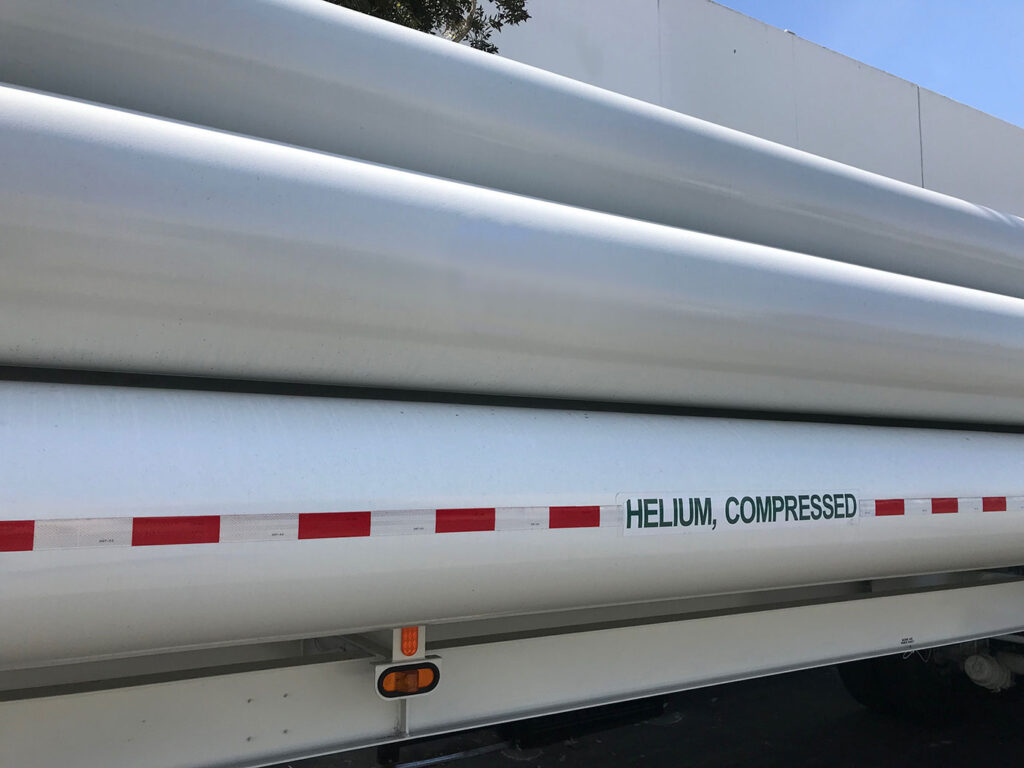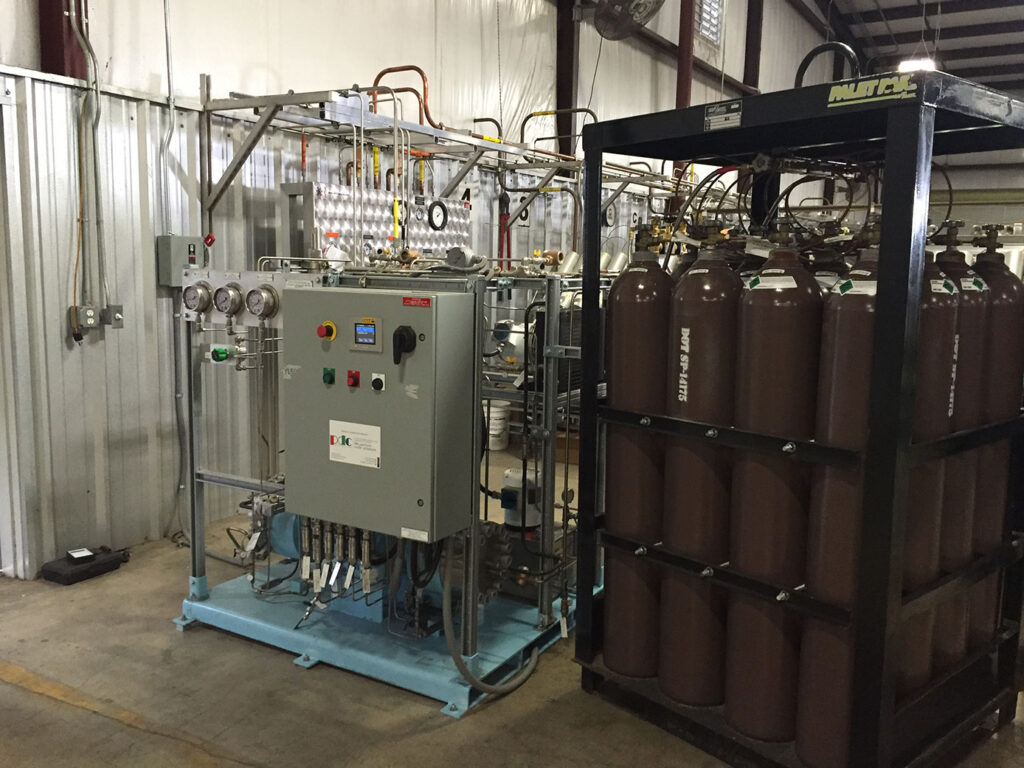Industrial Applications of Helium Compressors: Powering Innovation and Efficiency
What is helium?
As a low molecular weight gas, helium needs to be compressed using a helium compressor to a high pressure for storage efficiency. Helium is also a nonrenewable element, making efficient use and recycling essential. As many companies dependent on helium know, the worldwide helium shortage has affected key industries, making helium recycling critical. PDC Machines oil free helium gas compressors are the product of choice when the purity of helium is critical. PDC helium compressors can also do helium recovery by recapturing exhausted helium from processes when used for leak testing.
Helium is a colorless, odorless, lighter than air tasteless gas that plays a vital role in numerous industrial applications. Its unique properties include inertness, low density, small molecule size, and high thermal conductivity, making helium – and helium compressors – an indispensable resource for a wide range of industrial applications.


What is a helium compressor?
How does a helium gas compressor work?
A helium compressor is a device used to capture new, mixed, or recycled helium and compress the less-dense-than-air gas, a process that generates substantial heat that the compressor then dissipates. Because of this, helium compressors enable the helium to be used in a number of useful industrial materials and research applications, from aerospace to healthcare.
How are high pressure helium compressors used in industrial applications?
One of the key uses of helium compressors lies in healthcare and research. With a boiling point close to absolute zero, helium is widely employed in cryogenics. In healthcare, helium is used to cool superconducting magnets in magnetic resonance imaging (MRI) machines, enabling precise imaging and diagnosis. Furthermore, in the field of scientific research, helium is utilized to cool particle accelerators and facilitate low-temperature experiments, advancing our understanding of fundamental physics. PDC’s reliable helium compressors prove ideal for these applications because of our extensive network of aftermarket support after installation.
Helium compressors also find use in the aerospace industry. Helium’s lower density than air makes it an ideal lifting gas for balloons and airships, aiding in scientific research and telecommunications. Moreover, helium is used to pressurize and purge the fuel tank in rockets and satellites, ensuring safe and efficient fuel delivery, during which helium compressors play an essential role. Compressing helium and helium compressors play a vital role in leak testing and pressurization of critical systems, preventing contamination and ensuring the integrity of aerospace components.
The electronics industry heavily relies on helium compressors as well. Helium’s inert properties are critical in the manufacturing of semiconductors, as helium creates a protective atmosphere, preventing oxidation and contamination of sensitive electronic components. Additionally, in the fiber optics industry, helium gas compression is used to pressurize and test optical fibers, ensuring optimum transmission efficiency.
PDC’s helium compressor features make them essential in ensuring the reliability and performance of modern electronic devices.
In the energy sector, helium compressors have applications in gas turbines and nuclear power plants. Helium is used as a coolant in gas turbines, enhancing their efficiency and power output. In nuclear reactors, helium is employed as a heat transfer medium, transferring heat from the reactor core to the power generation system. Helium compressors enable these critical energy applications.
Beyond these sectors, helium compressors find use in various other industrial material applications. Helium is utilized in welding and cutting processes, providing an inert shielding gas to protect molten metals from oxidation. Helium compression is also employed in leak detection systems, enabling the identification of leaks in pipelines and industrial equipment. The gas’s lightness and low viscosity allow it to escape through small openings, making it an effective tracer gas for leak detection purposes.
From healthcare and aerospace to electronics and energy, helium plays a crucial role in powering innovation and driving efficiency across various industries. Its unique properties, including low boiling point, inertness, and lightness, make it an indispensable resource for advanced technologies and processes. As industries continue to evolve and new technologies emerge, helium compression will remain a key element in shaping the future of industrial applications.
Why PDC Machines Helium Compressors?
+ Safety interlocks
PDC Machines’ high quality helium compressor products are completely instrumented for safe and automatic operation.
+ Fast Acting Leak Detection System
Included with every PDC helium diaphragm compressor is a leak detection system. This system detects diaphragm or seal failures. Our leak detection system monitors the gas and hydraulic sides of the compressor and will sound an alarm and/or shut down the compressor when it detects an anomaly or failure.
+ Leak-free helium compression
PDC’s compressors compress helium in an ultra-pure state. There is no contamination of the helium gas during compression.
+ High Compression Ratio
Our high pressure helium diaphragm compressors can achieve typical compression ratios up to 10:1 for certain models.
+ Superior & Extended Diaphragm Compressor Life
All aspects of PDC’s helium diaphragm compressors enhance component life, improve operability with low failure rate, and reduce and simplify maintenance.
+ Low Maintenance
PDC compressors typically only require routine oil changes.
+ Automatic Unloading System
PDC’s helium diaphragm compressors have many advantages such as being automatically reprimed at start-up. Manual start-up requires an experienced compressor technician to reprime the helium diaphragm compressor. Incorrect priming can cavitate the compressor and damage the heads, bolts, diaphragms, O-rings, process and hydraulic system. PDC’s helium compressors avoid this potential issue with our cutting-edge repriming tech.
+ Quiet Operation
Below 85 dBA at 1 meter without sound-proofing enclosure.
+ Unique Oil Distribution System
PDC helium diaphragm compressors hydraulic systems are designed in such a way as to ensure uniform diaphragm deflection rate, prevent knocks, vibration, cavitation and yield smooth, and quiet compressor operation.
+ Low Energy Costs
PDC’s helium compressors use a heavy flywheel to provide energy. In addition, Duplex and two-stage helium diaphragm compressors can be horizontally opposed to further reduce horsepower requirements and energy usage, resulting in ease of use and cost savings for the end user.
+ International Standards Compliance
PDC’s helium diaphragm compressors can be designed and certified to comply with US and global international codes and standards.
Please Send Us Your Requirements
PDC offers compressors for helium and other gasses from basic to fully automated turnkey gas compression systems which include piping, instrumentation, and controls. Helium compressor discharges pressures can go up to to 15,000 psig (1,000 barg), typical flow rates based on compression ratio to 320 scfm (500 Nm3/Hr), and horsepower consumptions to 200 Hp (150 kW).
For More Information:

